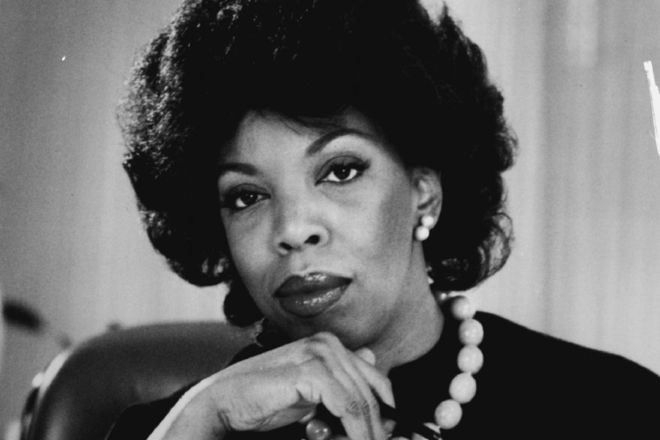(The Wall Street Journal ) - When Barbara Gardner Proctor applied for a Small Business Administration loan to start an advertising firm in 1970, she was asked what her collateral was.
“Me,” she replied. That turned out to be solid backing for the loan. Her Chicago-based firm, Proctor & Gardner Advertising Inc., lasted for 25 years and worked for clients including Kraft Foods and Sears, Roebuck & Co.
Though the firm never had more than a couple dozen employees, she became a role model for African-American women staking out positions of influence. Ronald Reagan praised her in his 1984 State of the Union address, and she spoke at conferences across the nation.
Born poor to an unwed mother in North Carolina, she relied on herself. “I have never had the luxury, or the hindrance, of having anyone to take care of me,” she said in a 1989 C-Span interview. “I was accustomed to taking care of myself.”
Ms. Proctor, who died Dec. 19 at the age of 86, found her gender was helpful in some ways. When she began her advertising career in the 1960s, “there was a national hysteria about blacks burning down buildings,” she told Forbes magazine. “But black women have never had the same difficulty dealing with white men. We’re not considered a threat.”
Barbara Juanita Gardner was born Nov. 30, 1932, in Asheville, N.C., to a teenage mother and raised by a grandmother in a Black Mountain, N.C., shack without electricity or indoor plumbing. In summer, Barbara earned 25 cents a day helping her grandmother clean vacation homes. Her grandmother said the girl wasn’t cute but was “right smart.”
African-American women of her generation, she said later, had three vocational choices: nurse, hairdresser or teacher. She chose teaching and enrolled at Talladega College in Alabama, where she studied education, English, psychology and sociology and earned two degrees.
After a summer job as a camp counselor in Kalamazoo, Mich., she intended to return to North Carolina and teach. During a stopover in Chicago, however, she ran out of money and decided to look for work. She found a job at the Urban League and later was a jazz critic for Downbeat magazine and wrote liner notes for Vee-Jay Records. The record company sent her to Europe to swap recorded music with record labels there. On one of those trips, she helped arrange for Vee-Jay to distribute early Beatles records in the U.S.
In the late 1950s, she met Carl Proctor, who also worked in the music industry. They married and had a son, but the marriage broke down after several years. Around the same time, she lost her job at Vee-Jay and fell into a funk. “I stayed in the house for about 18 months and licked my wounds,” she said later.
Then she resolved to find work in advertising, a business she figured would teach her how to write more concisely. She learned to create punchy ads but clashed with some of her bosses. At one agency, she was asked to work on an ad making light of protest marches. “We had a hair-care product account and they wanted to have a demonstration in the streets with all the women running up and down waving these cans in the air, demonstrating for this product,” she told the Chicago Sun-Times. “I said that was demeaning and stupid and I wouldn’t do it. So, of course, I was fired.”
Recent ObituariesRobert P. Smith Searched for Overseas Adventure—and Distressed Bonds January 25, 2019
After Surviving 9/11, Young Investment Analyst Charted a New Career Course January 23, 2019
Author Russell Baker Dies at 93 January 23, 2019
That experience emboldened her to launch her own firm in 1970. She called it Proctor & Gardner, using her married and maiden names in the hope that people who didn’t trust a woman would think she had a male partner. Most of the firm’s assignments were for ads, public relations and events aimed at African-Americans.
She hoped eventually to expand beyond the African-American category. “I don’t see struggling along for the rest of my life on a minuscule share of the market,” she told the Chicago Tribune two years after founding her firm. “In one way or another I have to get into the mainstream of advertising.”
She managed to do some work for the broader market, said her son, Morgan Proctor, but the bulk of the business remained related to her minority niche.
Illinois Bell Telephone Co. appointed her to its board in the 1980s, and she was a frequent motivational speaker. “You can’t work like a dog and look like a doll 24 hours a day,” she told women at a 1991 conference in Cleveland. Women should take time out for themselves, she said: “M-E is OK.”By the mid-1990s, her firm was losing clients to larger rivals. She filed for bankruptcy protection in 1995 and later formed another company focused on website design and internet marketing.
Ms. Proctor, who recently fractured a hip and had dementia, is survived by her son, a sister and two grandchildren.
“If someone were to tell me a glass ceiling was standing in my way,” she once said, “I would open a window, fly out and continue to soar.”
Write to James R. Hagerty at This email address is being protected from spambots. You need JavaScript enabled to view it.
Barbara Gardner Proctor Became a Role Model for African-American Women
Typography
- Smaller Small Medium Big Bigger
- Default Helvetica Segoe Georgia Times
- Reading Mode
















